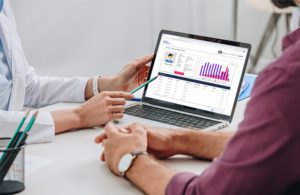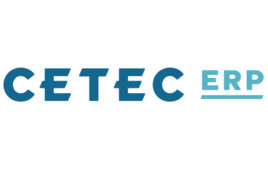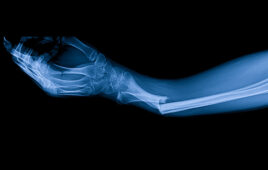One of the world’s largest medical device contract manufacturers, Phillips-Medisize is making a business play to provide the technological back end for connected drug delivery devices.

[Image courtesy of Phillips-Medisize]
Within a few years, the situation has dramatically changed.
Phillips-Medisize — a Hudson, Wis.–based contract manufacturer with thousands of workers at dozens of facilities around the world — has become not only focused on connected drug-delivery devices but also on the data systems behind them. Company officials say they already have more than 25 potential customers in the pipeline for their third-generation Connected Health Platform, an FDA-registered medical device data system that rolled out in October 2018.
How Phillips-Medisize got into the data systems business is but one example of medtech contract manufacturers adapting to an age in which every product seems to have some kind of digital or connected feature.
In the case of drug-delivery devices, a number of factors came together at once, according to Kevin Deane, Phillips-Medisize’s VP of innovation. The proliferation of smartphones and IoT-based technical solutions made pharmaceutical company executives aware of what was possible. Plus, more blockbuster medicines were combination products requiring injection or inhalation devices that were easier to connect.
Perhaps most important of all, there was the shift toward outcome-based reimbursement in healthcare systems in the U.S. and around the world.
“If you’re thinking about outcome, you need ways to measure that your drug is effective – and also know that people are taking the drug as intended,” Deane told Medical Design & Outsourcing.
Phillips-Medisize officials saw a business opportunity when it came to providing the data systems behind connected drug-delivery devices, according to the company’s CTO, Bill Welch.
“The very same reason that they’re coming to us for their device combination product manufacturing is the exact same reason why they’re coming to us for this service. Focus on the drug, on the go-to-market part of it, and let service providers handle the other activities,” Welch said.
How the Connected Health Platform happened
Two business deals in 2016 provided Phillips-Medisize the resources to not only become a connected drug-delivery device maker, but also a data services company.
First, it purchased Medicom Innovation Partner, a development outfit in Denmark and the U.K. with a focus on connected drug-delivery devices. Within months, the Koch Industries company Molex bought Phillips-Medisize, an acquisition that gave Phillips-Medisize access to Molex’s extensive electronics manufacturing capabilities.
“We’ve got that full ability to manufacture the complete device from mechanical, electronic as well as other supply chain components — and in the case of combination products, putting the drug into the device,” Welch said. “So, it’s giving you a finished, package-labeled combination product that in some cases could include electronics.”
Medicom had already helped Bayer with the data platform management behind the Betaconnect autoinjector for people with relapsing forms of multiple sclerosis. The system includes a mobile app for patients and a web portal that enables specialist health providers, based on each patient’s specific consent, to review a patient’s injection history and provide support.
A second project with an undisclosed pharmaceutical company is in the validation stage.
“If you’ve done the same thing twice, and you can see the market building in this area, it’s foolish to develop the same thing a third time,” Deane said. “It made sense to look at something that was a broader platform that we could reuse. This is the project that we’ve been working on over the last year and a half.”
Avoiding pitfalls
Phillips-Medisize’s Connected Health Platform has information-sharing and analytics capabilities, as well as cybersecurity and streamlined regulatory documentation. One thing Deane, Welch, and others at the company consciously decided not to provide in the base package was a mobile app.
“Our belief is that every application in every disease state is going to require a slightly different interface. Since that interface will then be targeted directly to the need of the patient within that disease area, it will require a separate mobile app,” Deane said.
Not including the apps in the base package also allowed Phillips-Medisize to avoid a greater level of regulatory burden, since apps can involve healthcare decision-making and could be classified as a mobile medical device application.
Phillips-Medisize also avoided reinventing the wheel. The foundation of the Connected Health Platform’s information-sharing and analytics comes from Cambridge, Mass.–based InterSystems HealthShare, which also counts electronic patient records giant Epic among its customers. InterSystems indicates that their technology supports the electronic health records of 500 million people around the world, with customers in more than 80 countries.
“InterSystems has their business figured out: interoperability, global deployments and security. … It only made sense for us to take advantage of that,” Welch said.
Patient anonymity is also an important part of the Connected Health Platform.
“We’re serving the data in a secure fashion, but we’re not analyzing or manipulating that data ourselves,” Deane said.
Phillips-Medisize is also making the investments needed to maintain the system as it grows.
“What we’ve been investing in is the service and support that is needed to deploy and maintain a system like this. The inherent challenge is synchronizing the rapidly changing mobile comms sector with the slower, but longer lasting, pharma and healthcare sector. This goes beyond just call center and technical support. We are incorporating post market surveillance and customer complaint handling in-line with expected medical device practices,” Deane said. “And we’re being very proactive in testing new mobile OS releases and phone models against our platform and apps, continually making the changes and modifications in a way that is seamless from our customers’ point of view.”
Moving up the value chain
Phillips-Medisize isn’t the only company seeking to provide the technological plumbing needed to make connected drug-delivery and other medical devices work, according to Tim Gee, principal at Medical Connectivity Consulting in Beaverton, Ore. For example, Validic (Durham, N.C.) for a number of years has provided a technology platform for digital health data.
“I think Phillips-Medisize saw that and decided, ‘Out of all these different areas it’s something that plays to our strengths,’” Gee said. “They’re moving up the value chain.”




